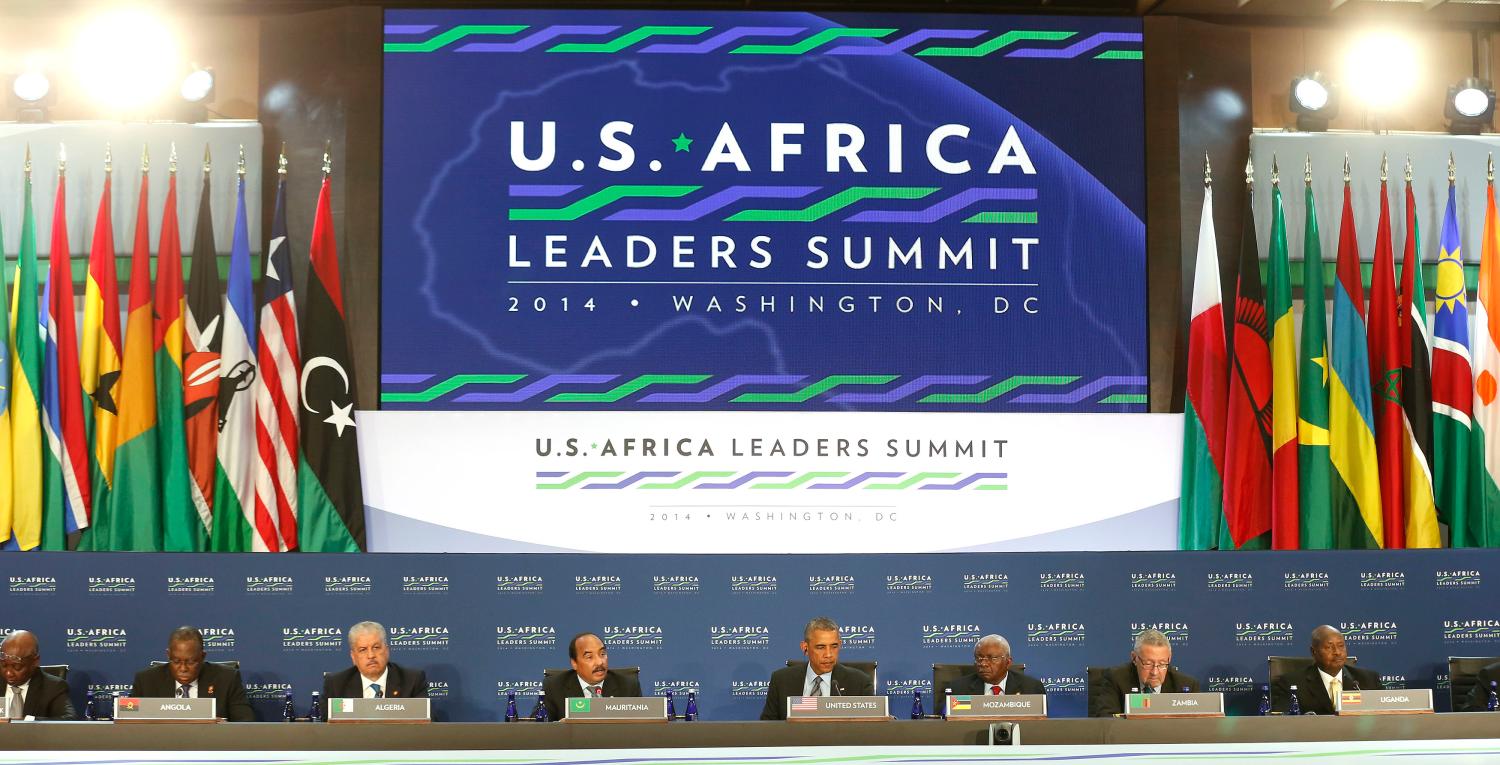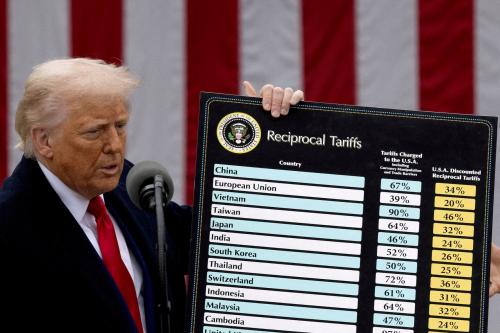Editor’s Note: The U.S.-Africa Leaders Summit blog series is a collection of posts discussing efforts to strengthen ties between the United States and Africa ahead of the first continent-wide summit. On August 4, Brookings will host “The Game Has Changed: The New Landscape for Innovation and Business in Africa,” at which these themes and more will be explored by prominent experts. Click here to register for the event.
During his second official trip to sub-Saharan Africa in 2013, President Obama announced that he would be hosting African leaders for a summit in Washington in 2014. The president’s announcement was met with high level of enthusiasm by many analysts who, in the past, have viewed U.S. policy on Africa under the Obama administration as lacking clear focus or creativity. On January 21, 2014, the White House formally announced the dates of the Leaders’ Summit as August 5-6, 2014. President Obama should be congratulated for taking this bold step—a step that will provide a significant opportunity to greatly enhance U.S.-Africa relationships. According to the White House press release, the president “looks forward to welcoming leaders from across the African continent to the Nation’s Capital to further strengthen ties with one of the world’s most dynamic and fastest-growing regions.” The summit could mark a turning point in U.S.-Africa relations, but only if the African leaders come to the summit with a well-structured strategy with clear objectives. Should the leaders lack a coherent strategy, they will end up wasting this great opportunity.
Strategies to Maximize the Value of the Summit
Although the summit provides a great opportunity to strengthen relations between the United States and Africa, it is not obvious that such positive results will materialize. If the leaders do not have clear and harmonized positions on which they want to come to agreement with President Obama, then the summit may end up largely unproductive. Here are some suggestions for the African leaders and their advisers as they prepare for the summit.
- Leaders must have a strategy as to how to proceed with the discussions, including identifying appropriate leaders who will articulate the specific positions. The African Union should probably be tasked with identifying the priority issues that African leaders should bring to the table.
- Leaders must not turn the summit into a “begging” forum. It will be a great disservice to Africans if the summit concentrates on asking for aid. If this item is on the preliminary agenda, leaders should just skip it. As for the United States, it would be unwise to bring up social issues, such as same-sex relations and marriages that would no doubt paralyze the summit and distract from the more pressing challenges on the continent.
- African leaders should come armed with strategies of engagement that result in mutual benefits to both United States and Africa. They should not waste time seeking additional preferences that only benefit Africa and are largely at the expense of the United States. They must demonstrate that Africa has something to offer for the benefit of America.
- If the leaders cannot resist asking the president’s assistance in extending and/or enhancing Africa Growth and Opportunity Act (AGOA), they should also be prepared to demonstrate how any new approach will also improve the United States’ participation in African markets.
- Leaders should focus on the few big things that really matter to the majority of Africans. My suggestion is to focus on regional integration and seek broader U.S. participation in supporting that integration. There are many investment opportunities for partnerships with American businesses that would enhance the integration process.
- African leaders should emphasize that the Power Africa initiative holds promise but it is small in scope, and there are many more investment opportunities to expand power in Africa. Likewise, they should note that the infrastructure deficit remains a primary constraint to growth. If nothing else, leaders should seek tangible results on how the U.S. private sector can play a bigger role in infrastructure development. Leaders should be prepared to articulate strategies that seek to improve the business climate for infrastructure development.
- They should bring the issue of illicit capital flows on the table. Some of these leaders’ colleagues are actually part and parcel to the illicit flows, but their success in this activity is, in part, due to collaboration of those in United States and other developed countries. It is important that illicit flows be curtailed, and the participation of the United States is crucial to curbing this trend.
- Leaders should stress that Africa remains marginalized in many aspects of global governance. They should use the summit to seek Obama’s support for increased and effective African representation in global governance.
- Security will be of central importance to the United States. Rising radicalism and terror groups are of real concern and are areas where collaboration between the United States and Africa can have a positive impact. However, African leaders must come up with clear strategies that are in harmony with their interests before they come to Washington.
- Leaders should focus on those aspects of U.S.-Africa engagement that accelerate economic transformation since the real challenge that Africa faces is transforming its economies and creating good jobs, especially for the youth.
- Finally, because we refer to the host as “Mr. President,” let us drop the “Excellency” for those days. No disrespect intended.
Logistical and Political Challenges
Of course, there are also some logistical challenges associated with organizing such a summit. The U.S. government is well positioned to deal with such a large convening, but still, planning the event will be complex. The United Nations in New York has the infrastructure for hosting a large number of leaders (as happens during the General Assembly), but the Washington summit will present various challenges. Then, of course, there are the spouses, as one can assume that they will be accompanying the leaders. Should the leaders bring with them an embarrassingly large number of staffers, as often happens, then the summit could turn out to be a logistical nightmare. Hopefully the African leaders will travel “light” and avoid extra baggage in the form staffers who are unlikely to add much value.
The other challenge for the organizers depends on which leaders show up. The press release suggests that leaders will come from across the continent but it is not quite explicit that “all” leaders will be invited. Assuming that all the leaders from the continent will be invited and many show up, then the president will find himself in the company of all types of leaders—the good, the bad and the ugly—at least from the perspective of the U.S. government. One can only speculate how the State Department and the White House will deal with these leaders. It is likely that, while the White House will include most African leaders, some will necessarily be excluded from the invited list. It is hard to imagine an invitation going out to Omar al-Bashir of Sudan who, for obvious reasons, would decline anyway. A number of others are unlikely to receive the invitation or will self-exclude. But still, participants to the summit will comprise a mixed bag, and I suspect strategies will be in place to distant the president from some leaders as much as possible. Nothing personal, just politics.
The Brookings Institution is committed to quality, independence, and impact.
We are supported by a diverse array of funders. In line with our values and policies, each Brookings publication represents the sole views of its author(s).





Commentary
U.S.-Africa Leaders Summit: Seizing the Opportunity to Reposition Africa-U.S. Relations
January 23, 2014